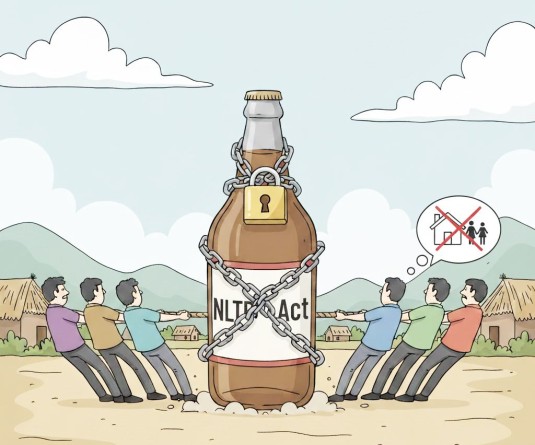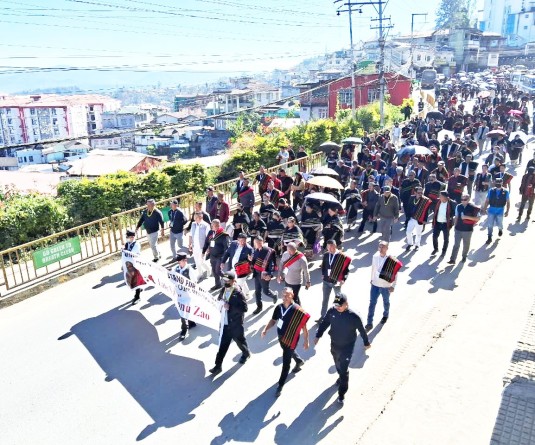
Kohima, September 30 (MExN): Kohima Sumi Students' Union (KSSU) organized a panel discussion on Article 371A at Mt Olive College auditorium here on September 30.
Kekhrie Yhome, Phd from JNU highlighted that through Article 371A Nagas’ legal rights are derived, according to a press release from rapporteur Zheviholi Swu, Advocate, High Court Kohima Bench. Article 371A is not only about customary law and practices but a legal mechanism to control our future, Kekhrie said. He further noted that due to Naga political movements, the Nagas enjoy numerous provisions, privileges and rights, as such, “we should take the advantage and march towards development,” the release added.
P Leonard Aier, principal of City Law College, Dimapur spoke on Article 371A with regard to ownership and transfer of natural resources. He deliberated on the background of Article 371A, Naga Club, 16-point Agreement, 9-point Agreement. Pointing out that in Nagaland, the land belongs to the people and not government, he said, Naga land therefore should be protected from being alienated or exploited by the outside agencies. He further stressed that the Inner Line Permit (ILP) should be implemented throughout Nagaland so as to protect the ownership, transfer of natural resources of the Nagas, the release said.
T Lima Nochet Jamir, Assistant Professor, Kohima Law College, spoke on the topic ‘Article 371A into perspective’. He stressed that customary laws are dynamic, intangible and not static. Uniform civil code under Article 44 of the constitution of India, he said, has both advantage and disadvantage. He pointed out growth in national integration and gender equality as an advantage, while the disadvantage will be that of being labeled against customary and personal laws. According to him, Naga women will benefit from Article 44 because women can inherit ancestral land.
Meanwhile, Zhekheli Zhimomi, Advocate, Guwahati High Court, Kohima Bench deliberated on ‘administration of civil and criminal customary law’. She pointed out the three types of court under the customary court – district customary court, subordinate customary court, and at village level. Customary court can take only civil cases like land disputes, GB issue and criminal cases have to be taken by the Indian court, she informed. Zhekheli further said the powers of customary court are very limited and is confined to village level. She further maintained that men folk have manipulated, misused Article 371A with regard to 33% reservation for women in urban local bodies’ election, the release added. On the ownership and transfer of land and natural resources, she said that land belongs to individual and no one can intervene. However, this right can be infringed upon by the outside agencies if “we do not utilise vigilantly.” The Nagaland Oil and Petroleum Act, she added, is a violation of Article 371A as in the name of economic development, the right to land holding is given to the outsiders. Ainato Yeptho, Assistant Director, NSACS also gave a brief highlight on HIV&AIDS. Nagaland, he said, is one of the highest States diagnosed/tested with HIV&AIDS and about 22,000 of the State population is tested with HIV&AIDS. The presentations were followed by discussion hour, where the participants clarified their doubts and queries.


.jpg)


.jpg)
